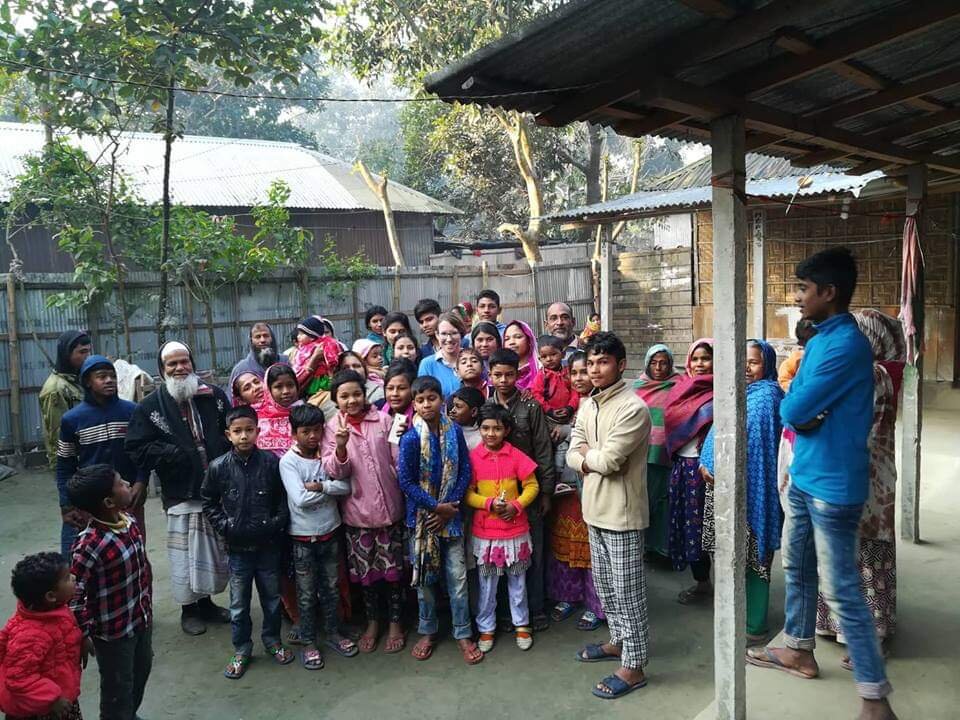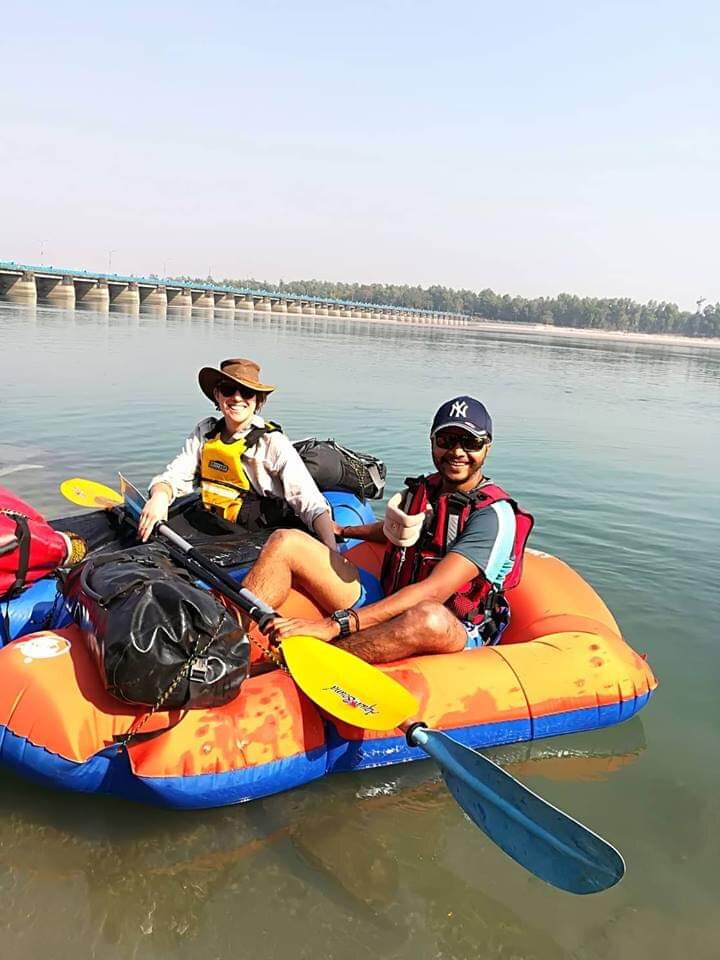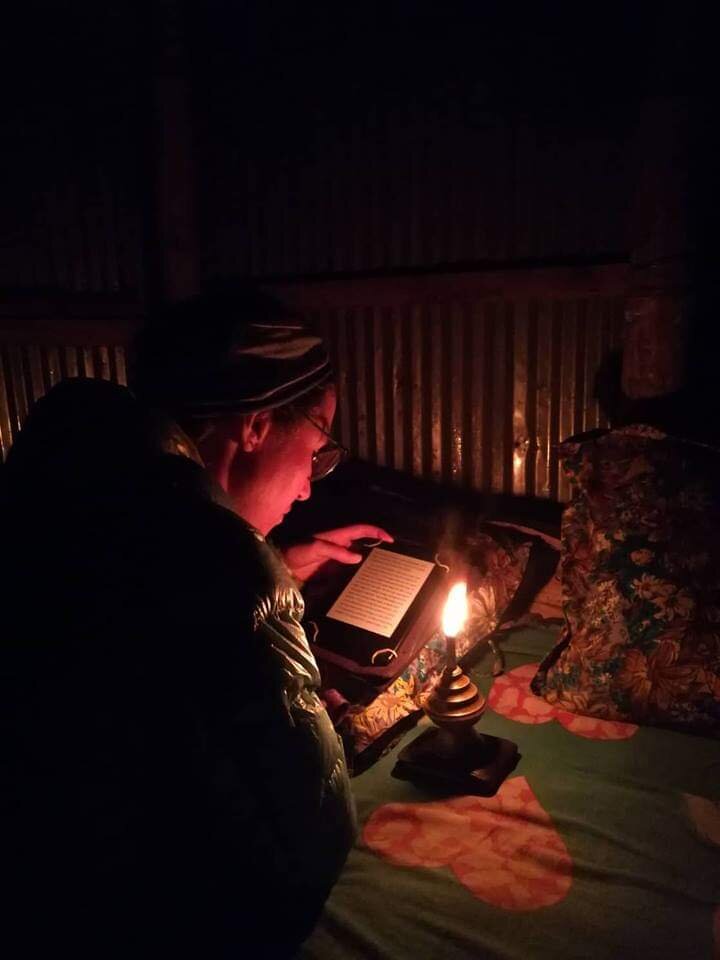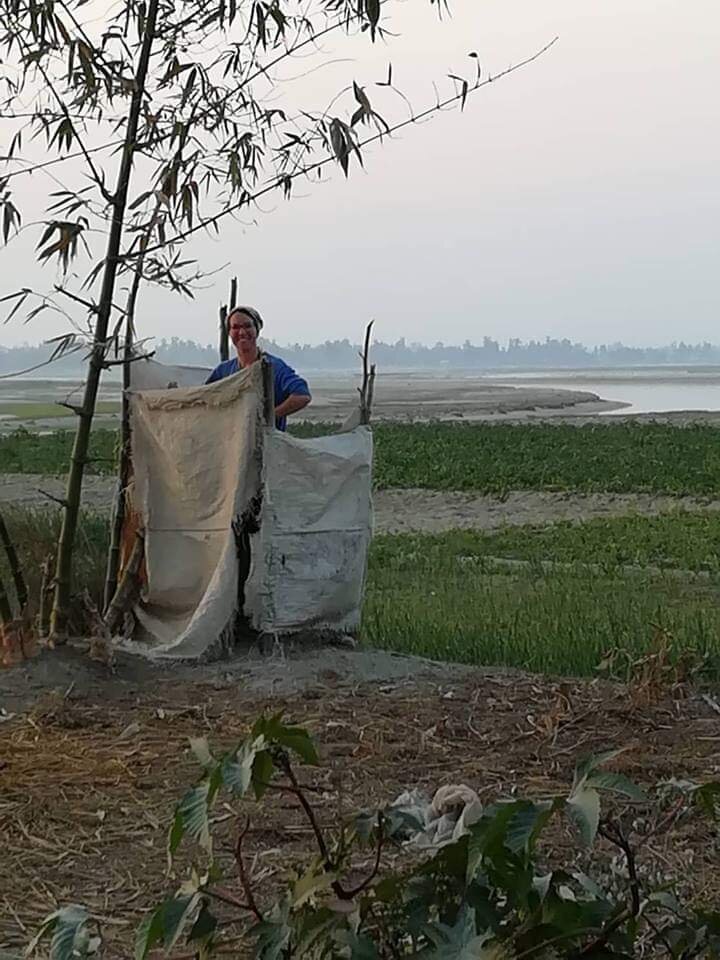A map of the journey, the hearts show the places where I slept. The original aim had been to packraft from the Indian border to the Bay of Bengal, but as you can tell this didn’t quite happen.
In 2017 me and my friend, Russ, cycled from Dhaka to the Indian border. On the way we had to take our bikes across the Brahmaputra-Jamuna river. Sat on the boat a thought struck us ‘wouldn’t it be cool to come back and paddle these rivers!’. And so it was, 15 months later that I was boarding a flight to Dhaka, only this time with a packraft in tow.
Me and Russ back in 2017, where the idea was seeded.
Having been to Bangladesh before I had some idea of what I was getting myself into. Bangladesh has a population of 165 million, all crammed into a space 2/3rd’s smaller than the UK making it the most densely populated large nation on earth. Personal space is out the question. It is also ridiculously flat, with an average elevation of 4-5metres above mean sea level making it highly susceptible to flooding, especially from June-October when the monsoon rains hit. One of the reasons we chose Jan/Feb for our trip was that it would be in the cool, dry season making paddling a whole lot easier.
Russ picked me up from the airport on his scooter!
In terms of planning it wasn’t very difficult. In fact our lack of groundwork was almost irresponsible - we didn’t even know if the first river would have water in it until the day we arrived! Our organisation basically consisted of us taking a load of packrafting gear on a train to the north and then getting on the water. We decided that local knowledge on the way would be far more valuable than anything on the internet, of which there was sparse material available anyway.
Of course we had worries; one concern was that the Teesta (our first river) wouldn’t have any water in it, and that even if there was the flow would be non-existent. Another was the durability of Russ’ boat, something which did actually come to haunt us a week in. After a week, on our second river, the Brahmaputra-Jamuna, Russ’s boat tore and we had to make the difficult decision as to whether I should also stop or carry on alone. I decided to carry on alone.
Lastly a little bit about Russ. The journey would have been so much more difficult if it hadn’t been for him. Russ is from Bangladesh originally but spent over 15 years living in Manchester, where we became friends. He had quite the career, before deciding to turn it all in and move back to Bangladesh to buy some land and live with the under-represented people of the Chittagong Hill Tribes. He runs a charity called the ‘Change The Lives Foundation’, which provides shelter and activities for children who live on the railways in Tongi, Dhaka. It was interesting when Russ met people; frequently he was asked what he did for work and he would respond with either ‘farmer’ or ‘social worker’. This often left locals baffled, how had a farmer learnt English!
During our first week Russ organised everything; when we got to a village he would find the local politician and arrange somewhere to sleep; when we were hungry he found us food; when we didn’t know the way he would ask fishermen who would point us in the right direction. Once he left, the trip changed completely, but he was always available on the phone if I needed him. Basically he was a life saver, and I am incredibly grateful for his time, patience and perseverance.
With our packrafts, we were both dubious of the durability of Russ’ from the start.
All our equipment for 2 people to camp and paddle for a month.






























































